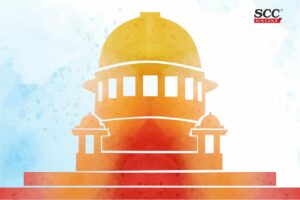Supreme Court: The 3-judge bench of UU Lalit, Indira Banerjee and KM Joseph, JJ has issued notice in a plea seeking declaration of Section 124-A IPC to as unconstitutional and void.
The order came after Senior Advocate Colin Gonalves submitted before the Court that the decision of the Court in Kedar Nath Singh v. State of Bihar, 1962 Supp. (2) SCR 769 requires reconsideration.
The notice is returnable on July 12, 2021.
Section 124-A IPC and it’s history
124-A. Sedition.—Whoever, by words, either spoken or written, or by signs, or by visible representation, or otherwise, brings or attempts to bring into hatred or contempt, or excites or attempts to excite disaffection towards, [* * *] the Government established by law in [India], [* * *] shall be punished with 5[imprisonment for life], to which fine may be added, or with imprisonment which may extend to three years, to which fine may be added, or with fine.
Explanation 1.—The expression “disaffection” includes disloyalty and all feelings of enmity.
Explanation 2.—Comments expressing disapprobation of the measures of the Government with a view to obtain their alteration by lawful means, without exciting or attempting to excite hatred, contempt or disaffection, do not constitute an offence under this section.
Explanation 3.—Comments expressing disapprobation of the administrative or other action of the Government without exciting or attempting to excite hatred, contempt or disaffection, do not constitute an offence under this section.
The section corresponding to Section 124-A was originally Section 113 of Macaulay’s Draft Penal Code of 1837-39, but the section was omitted from the Indian Penal Code as it was enacted in 1860. The reason for the omission from the Code as enacted is not clear, but perhaps the legislative body did not feel sure about its authority to enact such a provision in the Code. Be that as it may, Section 124-A was not placed on the Statute Book until 1870, by Act 27 of 1870.[1]
Sedition, which is an offence against the State, was not an invention of the British Government in India, but has been known in England for centuries. Every State, whatever its form of Government, has to be armed with the power to punish those who, by their conduct, jeopardise the safety and stability of the State, or disseminate such feelings of disloyalty as have the tendency to lead to the disruption of the State or to public disorder.[2]
However, criticism on political matters is not of itself seditious. The test is the manner in which it is made. Candid and honest discussion is permitted. The law only interferes when the discussion passes the bounds of fair criticism. More especially will this be the case when the natural consequence of the prisoner’s conduct is to promote public disorder.[3]
Law laid down under Kedar Nath Singh
The 5-judge bench had held that the Section 1240A was constitutionally valid as it, “strikes the correct balance between individual fundamental rights and the interest of public order”
“… the explanations appended to the main body of the section make it clear that criticism of public measures or comment on Government action, however strongly worded, would be within reasonable limits and would be consistent with the fundamental right of freedom of speech and expression. It is only when the words, written or spoken, etc. which have the pernicious tendency or intention of creating public disorder or disturbance of law and order that the law steps in to prevent such activities in the interest of public order.”
The Court noticed that the gist of the offence of “sedition” is incitement to violence or the tendency or the intention to create public disorder by words spoken or written, which have the tendency or the effect of bringing the Government established by law into hatred or contempt or creating disaffection in the sense of disloyalty to the State.
“This Court, as the custodian and guarantor of the fundamental rights of the citizens, has the duty cast upon it of striking down any law which unduly restricts the freedom of speech and expression with which we are concerned in this case. But the freedom has to be guarded against becoming a licence for vilification and condemnation of the Government established by law, in words which incite violence or have the tendency to create public disorder. A citizen has a right to say or write whatever he likes about the Government, or its measures, by way of criticism or comment, so long as he does not incite people to violence against the Government established by law or with the intention of creating public disorder. The Court has, therefore, the duty cast upon it of drawing a clear line of demarcation between the ambit of a citizen’s fundamental right guaranteed under Article 19(1)(a) of the Constitution and the power of the legislature to impose reasonable restrictions on that guaranteed right in the interest of, inter alia, security of the State and public order.”
[Kishorechandra Wangkhemcha v. Union of India, 2021 SCC OnLine SC 374, order dated 30.04.2021]
[1] Kedar Nath Singh v. State of Bihar, 1962 Supp (2) SCR 769, Para 10
[2] Ibid
[3] Commentaries on the Laws of England, 21st Edn., Vol. IV, at pp. 141-42

